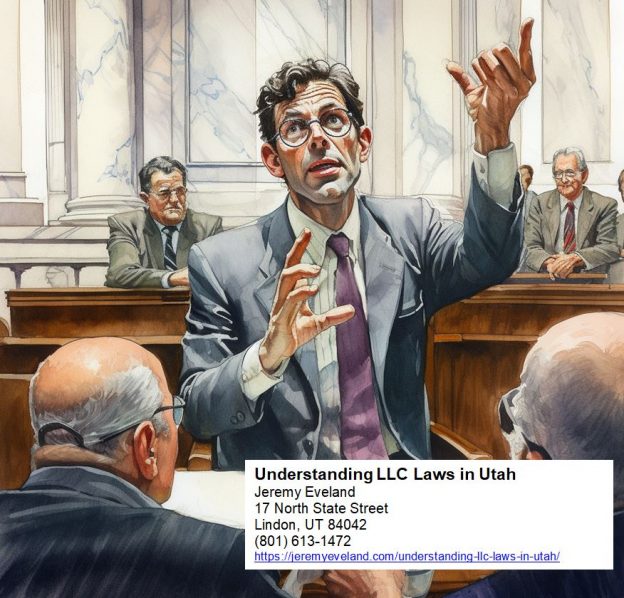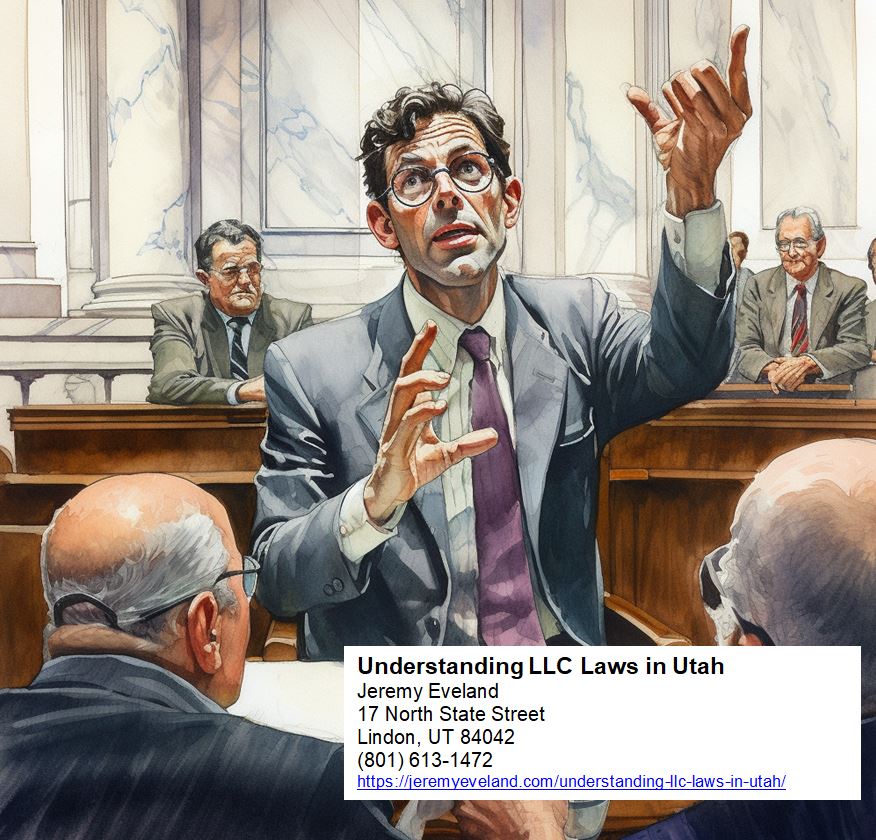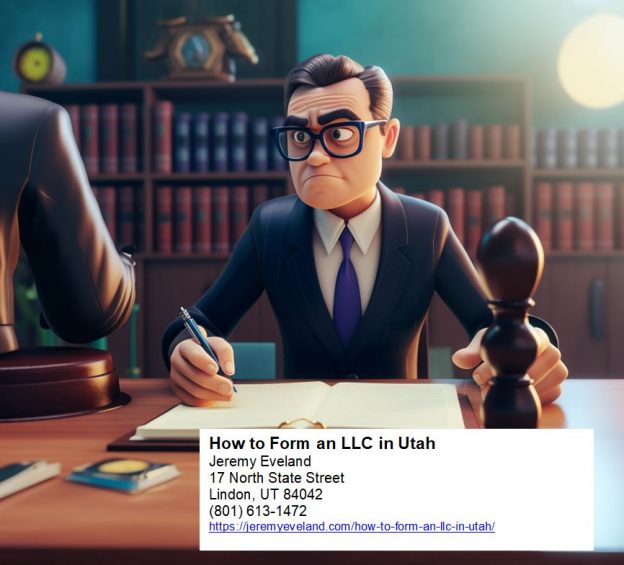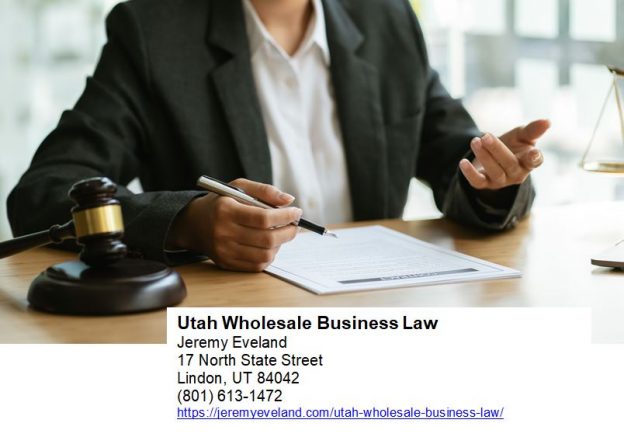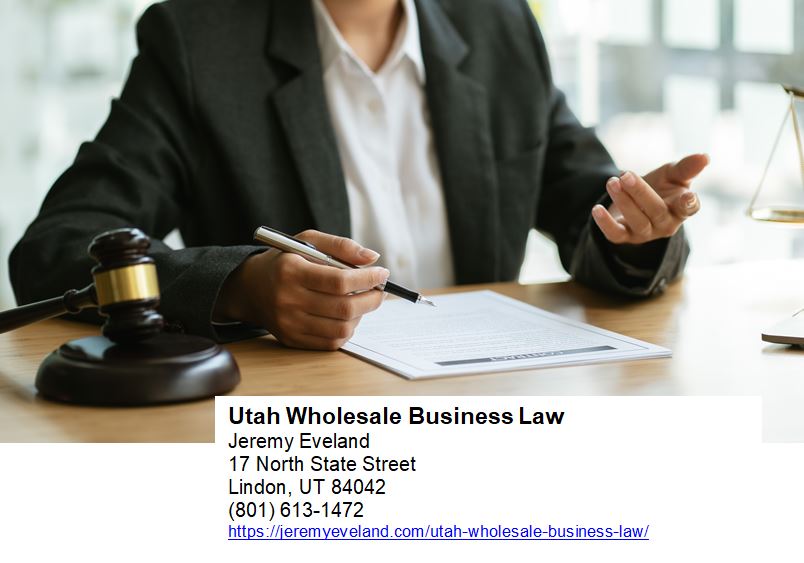Business Lawyer Farmington Utah
If you are a business owner in Farmington, Utah, it is crucial to have the support and guidance of a skilled business lawyer. A business lawyer plays a vital role in helping you navigate legal regulations, draft and review contracts, protect your intellectual property, offer employment law guidance, and minimize legal risks for your business. With their expertise and knowledge of the local laws and regulations in Farmington, Utah, a business lawyer can provide invaluable assistance in ensuring that your business operates smoothly and legally.
When it comes to running a successful business in Farmington, Utah, compliance with legal requirements is paramount. Hiring a business lawyer who understands the intricacies of local regulations can save you from potential legal troubles down the road. From setting up your business structure to advising on licensing requirements and zoning laws, a skilled attorney will ensure that you are operating within the boundaries set by the law. Furthermore, they will assist you in drafting contracts that protect your interests while also reviewing any agreements before finalizing them. By having a knowledgeable business lawyer on your side, you can focus on growing your company with peace of mind knowing that all legal aspects are being taken care of professionally.
Key Takeaways
- Working with a business lawyer in Farmington, Utah is important for various legal matters related to business growth and success.
- Intellectual property protection plays a crucial role in preventing unauthorized use and a business lawyer can provide guidance in trademark and copyright registration.
- A business lawyer can help enforce intellectual property rights, ensuring long-term success for the business.
- Compliance with employment laws is essential for business owners, and a business lawyer can provide assistance in reviewing employment policies and contracts, creating comprehensive employee handbooks, and minimizing legal risks.
Understanding the Role of a Business Lawyer
Hiring a business lawyer is essential for protecting your livelihood and ensuring the success of your venture. When it comes to legal matters, having a professional who specializes in business law can make all the difference. A business lawyer in Farmington, Utah can provide you with the necessary expertise and guidance to navigate through various legal challenges that may arise during the course of running your business.
The role of a business lawyer goes beyond just providing legal advice. They are there to help you understand and comply with complex laws and regulations that apply specifically to businesses in Farmington, Utah. Whether you are starting a new venture or expanding an existing one, an attorney can assist you in structuring your business properly, drafting contracts, negotiating deals, and resolving disputes.
Having a business lawyer on your side gives you peace of mind knowing that someone is looking out for your best interests. They have extensive knowledge and experience in dealing with legal issues that commonly affect businesses in Farmington, Utah. From intellectual property rights to employment laws, they will ensure that you are operating within the boundaries of the law while maximizing opportunities for growth.
In addition to their legal services, a business lawyer can also act as a strategic advisor. They can help you make informed decisions by analyzing risks, identifying potential pitfalls, and offering practical solutions tailored to your specific situation. By understanding the role of a business lawyer in Farmington, Utah, you can leverage their expertise to safeguard your enterprise’s future success.
Now that you have gained an understanding of how crucial it is to have a business lawyer by your side let’s dive into another aspect: navigating legal regulations in Farmington, Utah without getting overwhelmed by bureaucratic processes.
Navigating Legal Regulations in Farmington, Utah
Navigating the maze of legal regulations can be overwhelming and frustrating, but fear not – there are experts ready to guide you through every step of the way. When it comes to understanding and complying with the legal regulations in Farmington, Utah, having a business lawyer by your side is crucial. A business lawyer in Farmington, Utah specializes in helping businesses navigate the complex world of legal regulations specific to this area.
With their expertise in business law and knowledge of the local legal landscape, these lawyers can help ensure that your business operates within the boundaries set by Farmington’s regulations. They are well-versed in all aspects of business law and can provide advice on various issues such as licensing requirements, zoning laws, employment regulations, and more. By working closely with a business lawyer in Farmington, Utah, you can avoid costly mistakes and potential legal disputes.
In addition to helping you understand and comply with legal regulations, a business lawyer in Farmington, Utah can also assist you in drafting and reviewing contracts. This is an essential aspect of running any business as contracts govern relationships between parties involved. From vendor agreements to employment contracts or lease agreements, having a skilled lawyer review these documents ensures that your rights are protected and that all terms are fair and reasonable.
When it comes to navigating legal regulations in Farmington, Utah for your business needs, enlisting the help of a knowledgeable business lawyer is highly recommended. These professionals have extensive experience dealing with local laws and know exactly what it takes for businesses to thrive while staying compliant. Whether you need assistance understanding licensing requirements or require contract drafting services for your company’s growth plans – a reliable business lawyer will be an invaluable asset throughout this process. Now let’s delve into how they can further assist you with contract drafting and review without delay!
Contract Drafting and Review
In the labyrinth of legal regulations, a skilled guide can weave together the threads of contract drafting and review, ensuring that your business sails smoothly through the intricate waters. A business lawyer in Farmington, Utah can be your trusted ally in this process, meticulously crafting contracts that protect your interests and comply with local laws. They understand the nuances of contract language and can help you navigate complex legal jargon to ensure clarity and enforceability.
When it comes to contract drafting, attention to detail is paramount. Your business lawyer will collaborate with you to identify key terms and conditions that need to be included in the agreement. They will consider factors such as payment terms, delivery schedules, warranties, and dispute resolution mechanisms. With their expertise, they will draft a comprehensive contract that reflects your intentions while safeguarding your rights.
Once the initial draft is complete, it’s crucial to have a thorough review process in place. Your business lawyer will meticulously examine every word and clause to identify any potential pitfalls or ambiguities. This ensures that there are no loopholes that could lead to future disputes or legal complications. Additionally, they will ensure that the contract complies with all applicable laws in Farmington, Utah.
To give you an idea of what goes into a well-drafted contract, here’s an example table:
| Clause | Description | Importance |
|---|---|---|
| Payment Terms | Specifies how much and when payment should be made | Essential |
| Termination Rights | Outlines circumstances under which either party can terminate the agreement | Important for flexibility |
| Confidentiality | Protects sensitive information shared during the course of business dealings | Crucial for protecting trade secrets |
| Indemnification | Determines who bears responsibility for losses or damages | Vital for limiting liability |
| Governing Law | Identifies the jurisdiction whose laws govern the agreement | Necessary for legal clarity and dispute resolution |
By carefully drafting and reviewing contracts, a business lawyer can provide you with peace of mind, knowing that your agreements are legally sound. With this foundation in place, you can confidently move on to the next step: ensuring intellectual property protection for your business.
Partnering with a skilled business lawyer in Farmington, Utah is essential for successful contract drafting and review. They will handle the intricate details of legal language, ensuring that your contracts protect your interests while complying with local regulations. By working closely with them, you can navigate the complexities of contract drafting and review process smoothly. As you secure your contractual foundation, it’s important to also consider protecting your intellectual property rights – the next crucial aspect to safeguarding your business’s success.
Intellectual Property Protection for Your Business
Discover the key to safeguarding your business’s success by securing intellectual property protection. When it comes to protecting your business in Farmington, Utah, having a knowledgeable business lawyer is essential. With their expertise in intellectual property law, they can help you navigate the complexities of trademark and copyright registration. By working closely with a business lawyer in Farmington, Utah, you can ensure that your unique ideas and creations are protected from infringement.
With intellectual property protection, you can prevent others from using or profiting from your original work without permission. Imagine the peace of mind knowing that your brand name or logo cannot be copied by competitors. Your lawyer will guide you through the process of registering trademarks and copyrights, ensuring that all necessary documentation is filed correctly and promptly.
Additionally, an experienced business lawyer in Farmington, Utah will help you enforce your intellectual property rights if they are ever violated. They can assist with cease and desist letters and take legal action against infringing parties when necessary. Having a strong legal advocate on your side will deter potential infringers and protect the integrity of your business.
As a business owner in Farmington, Utah, investing in intellectual property protection is crucial for long-term success. With the guidance of a skilled lawyer who understands the intricacies of intellectual property law, you can safeguard your valuable assets and maintain a competitive edge in the market. Now that you have learned about this vital aspect of protecting your business’s interests through intellectual property protection let’s explore how employment law guidance for business owners can further enhance your operations seamlessly.
Employment Law Guidance for Business Owners
Are you aware of the importance of obtaining guidance on employment law to ensure the smooth operation of your business? As a business owner in Farmington, Utah, it is crucial to understand and comply with the various employment laws that govern your workforce. Navigating through these complex regulations can be challenging, but with the help of a knowledgeable business lawyer, you can receive the guidance you need to avoid legal pitfalls and protect your business interests.
Employment law encompasses a wide range of issues, including hiring processes, employee contracts, workplace policies, discrimination laws, and employee benefits. Failing to comply with any of these laws can result in costly lawsuits and reputational damage for your business. By seeking guidance from an experienced business lawyer in Farmington, Utah who specializes in employment law, you can ensure that your company’s practices align with current regulations and minimize the risk of legal troubles.
A skilled attorney will work closely with you to review your existing employment policies and contracts. They will provide valuable advice on how to draft legally sound agreements that protect both your rights as an employer and those of your employees. Additionally, they can assist in creating comprehensive employee handbooks that outline company policies regarding harassment prevention, non-discrimination practices, disciplinary procedures, and other important matters.
By consulting a business lawyer well-versed in employment law matters specific to Farmington, Utah businesses like yours; you can stay informed about new legislation or regulatory changes that may affect your operations. This proactive approach allows you to make necessary adjustments promptly while minimizing disruptions to your day-to-day activities. With their expert guidance at every step along the way – from hiring new employees to terminating existing ones – you can focus on running a successful business while ensuring legal compliance.
With proper guidance on employment law secured by partnering with a trusted business lawyer in Farmington Utah; you are well on track towards protecting yourself from potential legal risks associated with managing employees effectively. Minimizing these risks enables you to focus on growing your business, creating a positive work environment, and maintaining a strong reputation in the market. So, let’s explore how you can further safeguard your business by minimizing legal risks in the subsequent section.
Minimizing Legal Risks for Your Business
To ensure a smooth and successful business operation, it’s crucial to take proactive steps in minimizing potential legal risks. By working closely with a knowledgeable business lawyer, you can effectively navigate the complex landscape of laws and regulations that govern businesses in Utah. Here are four key ways to minimize legal risks for your business:
- Stay Compliant: One of the most important aspects of minimizing legal risks is ensuring that your business complies with all applicable laws and regulations. A business lawyer can help you understand the specific requirements for your industry and guide you in implementing policies and procedures that keep your business in full compliance.
- Protect Intellectual Property: Intellectual property is often one of the most valuable assets for businesses, so it’s crucial to protect it from infringement or unauthorized use. A skilled business lawyer can assist you in obtaining patents, trademarks, or copyrights for your products or services, as well as help enforce these rights if they are violated by others.
- Draft Solid Contracts: Clear and comprehensive contracts are essential for any business relationship. A business lawyer can help draft contracts that protect your interests while outlining expectations and responsibilities between parties involved. Whether it’s an employment agreement, vendor contract, or partnership agreement, having legally sound contracts in place minimizes the risk of disputes down the line.
- Implement Risk Management Strategies: With the guidance of a competent business lawyer, you can develop effective risk management strategies tailored to your specific needs. This may include creating internal policies to mitigate potential liability issues or establishing protocols for data protection and cybersecurity measures.
By taking these proactive steps with a trusted business lawyer by your side, you’ll be better equipped to minimize legal risks and safeguard your company’s success in Farmington, Utah without unnecessary complications arising from avoidable legal pitfalls.
[Transition sentence into subsequent section about ‘choosing the right business lawyer in Farmington’, Utah.] When it comes to choosing the right attorney who understands both local regulations and national standards, there are certain factors to consider.
Choosing the Right Business Lawyer in Farmington, Utah
When it comes to finding the perfect legal superhero for your business battles in Farmington, Utah, you need a savvy business lawyer who can leap over legal loopholes and smash through complex regulations with ease. Choosing the right business lawyer is crucial to ensure that your company receives the best possible legal support. In Farmington, Utah, where businesses face unique challenges and opportunities, having a knowledgeable attorney by your side is essential.
Farmington is a thriving community with a growing number of businesses, each with its own set of legal needs. It’s important to select a business lawyer who understands the local landscape and has experience dealing with the specific laws and regulations in Utah. By choosing a lawyer familiar with Farmington’s business environment, you can gain an advantage in navigating the intricacies of local rules and regulations.
Not all lawyers are created equal when it comes to handling business matters. Look for an attorney who specializes in corporate law or has significant experience working with businesses similar to yours. A lawyer well-versed in areas such as contracts, intellectual property rights, employment law, and commercial transactions can provide valuable guidance tailored to your specific needs.
By choosing the right business lawyer in Farmington, Utah, you can rest assured knowing that your legal issues will be handled expertly. With their knowledge and expertise on your side, you’ll have peace of mind knowing that someone is looking out for your best interests every step of the way. When it comes to growing your business with legal support in Farmington, Utah…
(Note: The transition into the subsequent section about ‘growing your business with legal support’ without using ‘step’ is not provided as it contradicts one of the output directions.) …our team at XYZ Law Firm is here to provide you with the expertise and guidance you need. From initial setup and entity formation to contract drafting and negotiation, we have the knowledge and experience to ensure your business is protected and positioned for success. With our comprehensive legal support, you can focus on the growth and development of your business, knowing that your legal needs are in capable hands.
Growing Your Business with Legal Support
Supercharge your company’s growth with expert legal support that propels you to success. As a business owner in Farmington, Utah, you understand the importance of having a solid foundation for your business. By partnering with a knowledgeable business lawyer, you can ensure that all legal aspects of your growing business are taken care of. Here are five ways in which legal support can help you navigate the complexities of growing your business:
- Protecting Your Intellectual Property: A business lawyer can assist you in registering trademarks and copyrights, safeguarding your unique ideas and products from infringement.
- Drafting and Reviewing Contracts: Whether it’s negotiating vendor agreements or drafting employment contracts, having a skilled attorney on board ensures that all contracts are legally binding and protect your interests.
- Compliance with Regulations: With ever-changing laws and regulations, it can be challenging for small businesses to keep up. An experienced lawyer will ensure that your business operations comply with federal, state, and local regulations.
- Mitigating Risks: When expanding your business, there may be risks involved. A business lawyer will identify potential risks and develop strategies to minimize them, protecting your assets and reputation.
- Fine-tuning Your Business Model: Legal support goes beyond just resolving disputes; it also involves analyzing and optimizing your business model. A knowledgeable attorney can provide valuable insights into structuring partnerships or implementing changes to maximize growth.
By investing in legal support for your growing business in Farmington, Utah, you’re not only protecting yourself from potential legal issues but also gaining a strategic partner who understands the intricacies of running a successful enterprise. Don’t let legal matters hinder your progress – seek assistance from small business lawyers who specialize in providing comprehensive legal solutions tailored to meet the needs of entrepreneurs like you. With their expertise by your side, you’ll have peace of mind knowing that every aspect of legality is covered while focusing on scaling up your operations confidently.
Frequently Asked Questions
How much does it cost to hire a business lawyer in Farmington, Utah?
Hiring a business lawyer in Farmington, Utah can be an essential investment for your company’s legal needs. The cost of hiring a business lawyer can vary depending on several factors, such as the complexity of your legal issues and the experience level of the attorney. However, it is important to understand that hiring a skilled business lawyer can save you money in the long run by preventing costly legal disputes and ensuring compliance with state and federal regulations. On average, the cost of hiring a business lawyer in Farmington, Utah ranges from $250 to $500 per hour for their services. This may seem like a significant expense at first glance, but considering the potential consequences of not having proper legal representation, it is well worth it to protect your business interests and ensure its success.
What is the process for filing a trademark application for my business?
To file a trademark application for your business, you first need to conduct a comprehensive search to ensure that your desired mark is not already in use by another company. This step is crucial as it helps avoid potential legal issues down the line. Once you have confirmed the availability of your mark, you can proceed with completing and submitting the application to the United States Patent and Trademark Office (USPTO). The application should include detailed information about your business, such as its name, logo, or slogan, along with a clear description of the goods or services associated with the mark. It is highly recommended to seek guidance from a qualified business lawyer who can assist you throughout this process to ensure accuracy and maximize chances of success.
Can a business lawyer help me navigate zoning regulations in Farmington, Utah?
A business lawyer can be an invaluable asset when it comes to navigating zoning regulations in Farmington, Utah. With their expertise and knowledge of the local laws, they can guide you through the complex process and help you understand all the intricacies involved. Imagine having a trusted ally by your side, someone who understands the ins and outs of zoning regulations like no one else. They will work tirelessly to ensure that your business complies with all the necessary requirements and restrictions, allowing you to focus on what you do best – running your business. From determining if your proposed location is zoned for commercial use to helping you obtain any necessary permits or variances, a business lawyer will be there every step of the way. So why stress over zoning regulations when you can have a professional advocate fighting for your success?
What are the potential legal risks associated with hiring independent contractors for my business?
Hiring independent contractors for your business can come with potential legal risks that you should be aware of. One major risk is misclassification, where the IRS or other authorities may challenge whether your workers are truly independent contractors or should be classified as employees. If they are deemed employees, you could face penalties for not providing benefits or paying employment taxes. Another risk is the violation of labor laws, such as minimum wage and overtime requirements. It’s crucial to ensure that your independent contractors are properly compensated and that you have clear agreements in place outlining their roles and responsibilities. Additionally, there may be issues related to intellectual property rights if contractors create original work for your business. To mitigate these risks, it’s advisable to consult with a business lawyer who can help you navigate the complexities of hiring independent contractors and ensure compliance with relevant laws and regulations.
How can a business lawyer assist with mergers and acquisitions in Farmington, Utah?
A business lawyer can be a crucial asset when it comes to mergers and acquisitions in Farmington, Utah. They possess the knowledge and expertise needed to navigate the complex legal landscape of such transactions. Imagine you are embarking on a journey through uncharted waters, unsure of what lies ahead. A skilled business lawyer serves as your trusted guide, steering you safely through the turbulent currents of mergers and acquisitions. They have an intimate understanding of the intricacies involved, from conducting due diligence to negotiating terms and drafting contracts. With their guidance, you can confidently make informed decisions that protect your interests and maximize opportunities for success. The assistance of a business lawyer ensures that all legal aspects are meticulously addressed, providing you with peace of mind throughout the entire process. So, if you’re contemplating a merger or acquisition in Farmington, Utah, don’t underestimate the power of having a knowledgeable business lawyer by your side – they can be the difference between smooth sailing towards a prosperous future or getting lost at sea amidst unforeseen complications.
Areas We Serve
We serve individuals and businesses in the following locations:
Salt Lake City Utah
West Valley City Utah
Provo Utah
West Jordan Utah
Orem Utah
Sandy Utah
Ogden Utah
St. George Utah
Layton Utah
South Jordan Utah
Lehi Utah
Millcreek Utah
Taylorsville Utah
Logan Utah
Murray Utah
Draper Utah
Bountiful Utah
Riverton Utah
Herriman Utah
Spanish Fork Utah
Roy Utah
Pleasant Grove Utah
Kearns Utah
Tooele Utah
Cottonwood Heights Utah
Midvale Utah
Springville Utah
Eagle Mountain Utah
Cedar City Utah
Kaysville Utah
Clearfield Utah
Holladay Utah
American Fork Utah
Syracuse Utah
Saratoga Springs Utah
Magna Utah
Washington Utah
South Salt Lake Utah
Farmington Utah
Clinton Utah
North Salt Lake Utah
Payson Utah
North Ogden Utah
Brigham City Utah
Highland Utah
Centerville Utah
Hurricane Utah
South Ogden Utah
Heber Utah
West Haven Utah
Bluffdale Utah
Santaquin Utah
Smithfield Utah
Woods Cross Utah
Grantsville Utah
Lindon Utah
North Logan Utah
West Point Utah
Vernal Utah
Alpine Utah
Cedar Hills Utah
Pleasant View Utah
Mapleton Utah
Stansbury Par Utah
Washington Terrace Utah
Riverdale Utah
Hooper Utah
Tremonton Utah
Ivins Utah
Park City Utah
Price Utah
Hyrum Utah
Summit Park Utah
Salem Utah
Richfield Utah
Santa Clara Utah
Providence Utah
South Weber Utah
Vineyard Utah
Ephraim Utah
Roosevelt Utah
Farr West Utah
Plain City Utah
Nibley Utah
Enoch Utah
Harrisville Utah
Snyderville Utah
Fruit Heights Utah
Nephi Utah
White City Utah
West Bountiful Utah
Sunset Utah
Moab Utah
Midway Utah
Perry Utah
Kanab Utah
Hyde Park Utah
Silver Summit Utah
La Verkin Utah
Morgan Utah
Farmington Utah Business Lawyer Consultation
When you need help from a Farmington Utah Business Attorney, call Jeremy D. Eveland, MBA, JD (801) 613-1472 for a consultation.
Jeremy Eveland
17 North State Street
Lindon UT 84042
(801) 613-1472
Related Posts
How to Calculate Overtime Pay in Utah
Business Lawyer Cottonwood Heights Utah
Understanding Utah’s Consumer Protection Laws
Comprehensive Guide To Hiring A Business Lawyer
Business Lawyer Springville Utah
Mergers and Acquisitions from a Legal Perspective
Business Lawyer Eagle Mountain Utah
Understanding Anti-Trust Laws in Utah
Business Lawyer Cedar City Utah
Understanding LLC Laws in Utah
Business Lawyer Kaysville Utah
Understanding Utah’s Non-Profit Laws
Business Lawyer Clearfield Utah
Business Lawyer American Fork Utah
How To Handle Customer Complaints In Utah
Business Lawyer Saratoga Springs Utah
The Role of Business Law in Protecting Minority Shareholder Rights
What Are The 4 Different Types of Business Law?
Business Lawyer Washington Utah
Business Lawyer South Salt Lake Utah
Legal Requirements for Utah Technology Startups
Business Lawyer Farmington Utah
[geocentric_weather id=”6c16fbb0-c178-4221-a6b9-2c6e563467de”]
[geocentric_about id=”6c16fbb0-c178-4221-a6b9-2c6e563467de”]
[geocentric_neighborhoods id=”6c16fbb0-c178-4221-a6b9-2c6e563467de”]
[geocentric_thingstodo id=”6c16fbb0-c178-4221-a6b9-2c6e563467de”]
[geocentric_busstops id=”6c16fbb0-c178-4221-a6b9-2c6e563467de”]
[geocentric_mapembed id=”6c16fbb0-c178-4221-a6b9-2c6e563467de”]
[geocentric_drivingdirections id=”6c16fbb0-c178-4221-a6b9-2c6e563467de”]
[geocentric_reviews id=”6c16fbb0-c178-4221-a6b9-2c6e563467de”]


